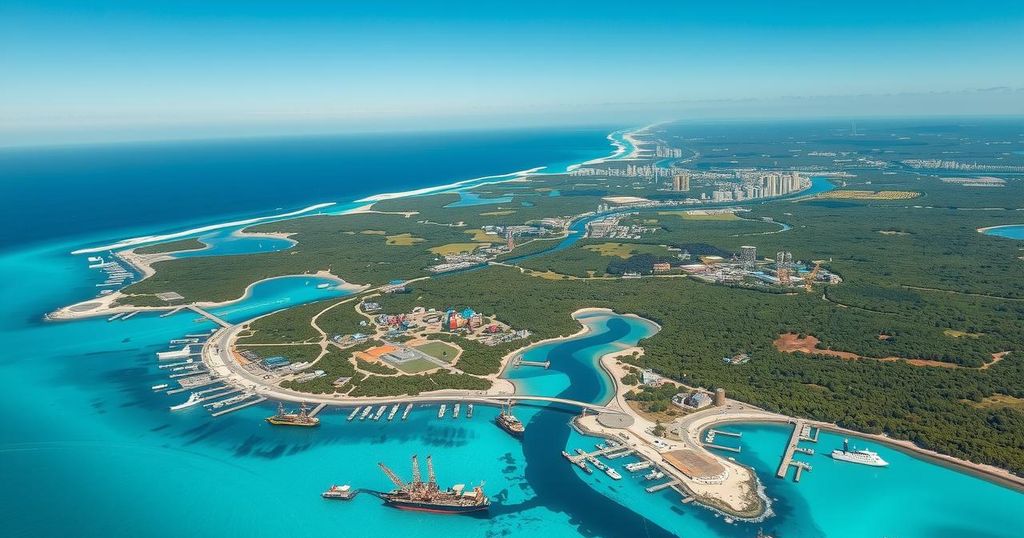Marco Rubio warned Venezuela of military consequences if it attacks Guyana, emphasizing U.S. support for the oil-rich nation amidst rising tensions over disputed territory. Venezuela’s claims are rejected, and an agreement for enhanced security cooperation was signed. This reflects strategic U.S. position amidst growing Chinese influence in South America.
U.S. diplomat Marco Rubio recently issued a strong warning to Venezuela regarding its territorial ambitions over oil-rich Guyana, emphasizing military support for the latter. Amid escalating tensions, Rubio noted that Venezuela’s leader, Nicolás Maduro, poses a significant threat by pushing claims to Guyana’s Essequibo region, previously accused of incursions this month. Rubio stated, “There will be consequences for adventurism. There will be consequences for aggressive action,” asserting U.S. military readiness to protect Guyana.
During a joint press conference in Guyana, Rubio warned that any attack on ExxonMobil’s oil projects by Venezuela would lead to severe repercussions for the Venezuelan government. While he refrained from detailing a military strategy, he remarked, “We have a big navy, and it can get almost anywhere.” Additionally, he signed an agreement enhancing U.S.-Guyana security cooperation, expanding upon previous maritime patrol efforts.
Guyana’s President Irfaan Ali expressed gratitude for Rubio’s reassurances regarding the protection of the nation’s sovereignty, condemning Venezuela’s claims as “illegitimate.” Responding to U.S. comments, Venezuelan Foreign Minister Yvan Gil dismissed them as mere threats, emphasizing that Venezuela does not seek conflict but will defend its interests in the Essequibo region.
Rubio’s comments align with broader U.S. foreign policy goals in Latin America, as he has indicated a desire for a stronger, binding security relationship with Guyana, reminiscent of partnerships in the Gulf region. This follows increasing tensions regarding Chinese influence in the region, particularly concerning infrastructure projects.
Amidst this emerging geopolitical landscape, the oil sector’s significance cannot be underestimated. Guyana is experiencing an oil boom, with ExxonMobil’s recent exploration yielding substantial crude reserves. This potential production growth, projected at 1.3 million barrels per day by the decade’s end, sharply contrasts with declining Venezuelan oil output, spurring U.S. interests to reconsider its stance in the region and limiting support for Venezuela’s state-owned oil company due to sanctions.
In summary, Marco Rubio’s warning signifies U.S. commitment to support Guyana against Venezuelan aggression over territorial disputes. With a focus on enhancing security cooperation, the United States positions itself strategically amid rising oil production in Guyana and growing Chinese influence in Latin America. By asserting military readiness, the U.S. aims to deter Venezuelan actions that threaten regional stability, while furthering its interests in energy resources.
Original Source: www.webstercountycitizen.com






